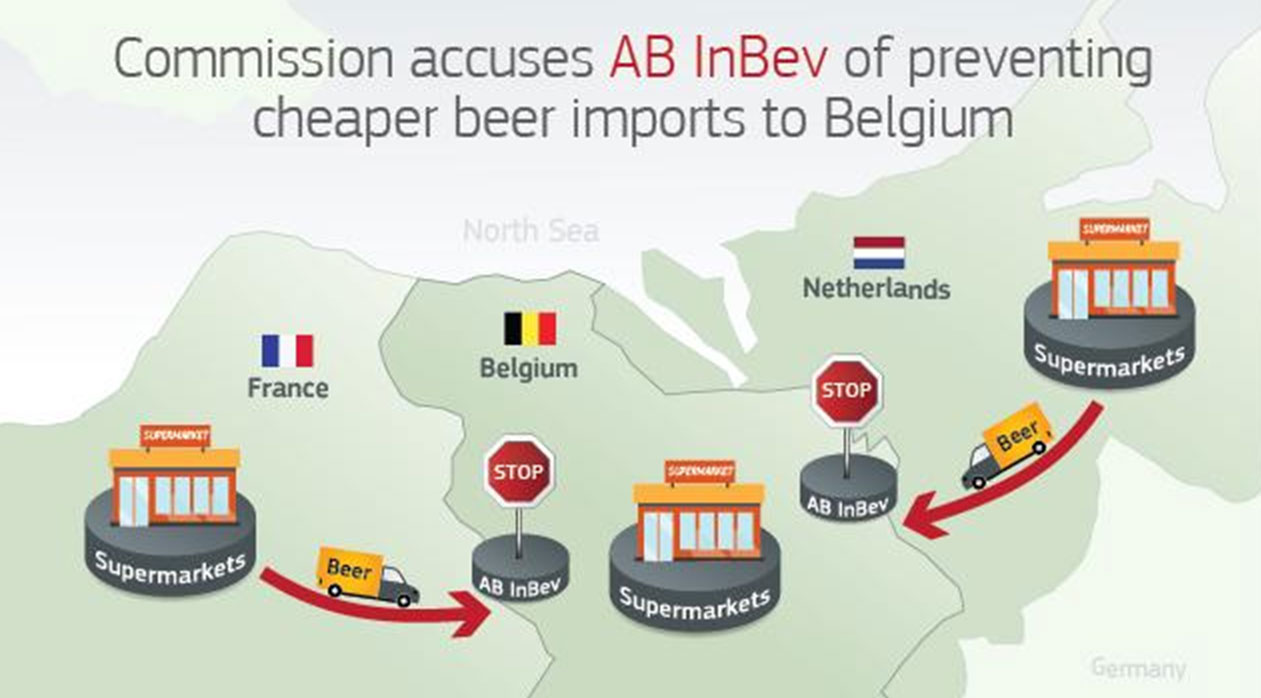EU Commission accuses AB-InBev of anti-competitive practices
For AB-InBev, it may just be a measure to stop cheaper parallel imports of its brands. But the antitrust body of the European Commission disagrees. On 30 November 2017 the European Commission informed AB-InBev of its preliminary view that the company has abused its dominant position on the Belgian beer market, by hindering cheaper imports of its Jupiler and Leffe beers from the Netherlands and France into Belgium.
AB-InBev is the world’s major beer brewer and the market leader in Belgium. Its most popular beer brands in Belgium are Jupiler and Leffe. Brewed in Belgium, AB-InBev also exports these two brands to the Netherlands and France.
The Commission’s investigation has shown that in these two countries AB-InBev sells Jupiler and Leffe at lower prices than in Belgium, due to the increased competition it faces there.
Allegedly AB-InBev has abused this dominant market position by pursuing a deliberate strategy to prevent supermarkets and wholesalers from buying Jupiler and Leffe at lower prices in the Netherlands and France, and from importing them into Belgium.
In particular, the Commission is concerned with a number of AB-InBev business practices, which have been in place since at least 2009. These include removing the French text from its cans in the Netherlands, and Dutch text from its cans in France, to prevent their sale in the French and Dutch speaking parts of Belgium, respectively.
The Commission’s preliminary view is that these practices have created anti-competitive obstacles to trade and subverted the EU’s Single Market.
In June 2016 the Commission opened formal antitrust proceedings into AB-InBev’s practices affecting the Belgian beer market. However, the notification of its Statement of Objections does not prejudge the outcome of the investigation.
Repeatedly, citizens, national competition authorities and the European Parliament have voiced concerns that prices for common food and drink products can significantly vary between (neighbouring) EU member states. While such price differences can have several reasons, when producers put in place artificial obstacles to trade from less expensive countries to more expensive countries (so-called parallel trade), these obstacles can breach EU antitrust rules.
A Statement of Objections is a formal step in Commission investigations into suspected violations of EU antitrust rules. The companies can then present their comments on the case before representatives of the Commission and national competition authorities.
There is no legal deadline for the Commission to complete antitrust inquiries into anticompetitive conduct.


